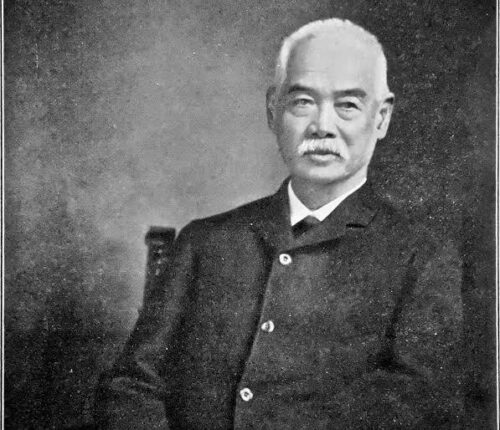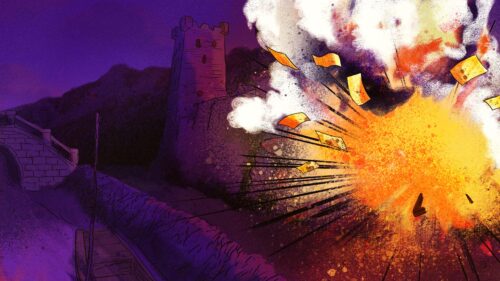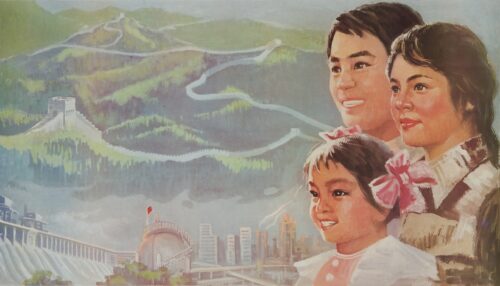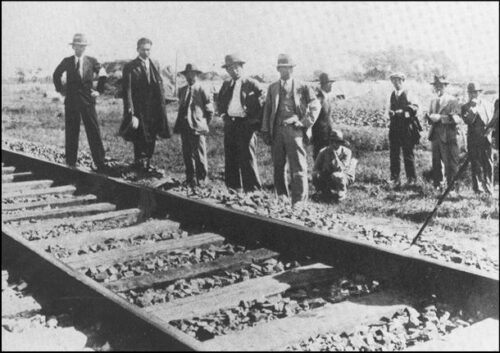This Week in China’s History: June 23, 2009
He had been held for more than six months without charges, but on June 23, 2009, Liú Xiǎobō 刘晓波 was formally arrested. He was charged under Article 2, Paragraph 105, of the 1997 Civil Code of the People’s Republic of China, which targets “anyone who uses rumor, slander, or other means to encourage subversion of the political power of the State or to overthrow the socialist system.”
Six months after the charges were levied, Liu was, predictably — perhaps inevitably is the better word — convicted. Although the law stipulates a sentence of not more than five years in normal cases of subversion, Liu was categorized as a “ringleader…whose crime is monstrous,” triggering a longer sentence: 11 years in his case.
The “monstrous crimes” that Liu Xiaobo was sentenced for began in the 1980s. A doctoral student in literature at Beijing Normal University, Liu was then, in the words of Sinologist Geremie Barmé, “attracting controversy by mocking the smug littérateurs of the day, warning about the dangers of revived traditional feudal culture and China’s possible slide into the ways of the past.” Liu completed his dissertation and took up a professorship at Beijing Normal in 1986. Such was his reputation that academia abroad came calling, landing Liu residencies in Hawaii, Oslo, and New York City. He was in New York, at Columbia University, when the 1989 protests began.
Like many, I suspect, one of my enduring images of Liu Xiaobo is in Carma Hinton and Richard Gordon’s film about the protests, The Gate of Heavenly Peace. Interviewed for the film, Liu describes his return to Beijing to support his students. “I was in New York at the time. This kind of news was on television and in the papers every day. When friends got together, all we talked about were these events. The TV images affected me deeply. I thought, ‘What’s the use of getting all worked up about it if you’re so far away?’ I had to go back.”
He went on, describing his layover in Tokyo as rumors about what was happening in Beijing flew: “It was dangerous for me to go back then. I even asked about flights returning to New York. But then I heard the boarding announcement for my flight to Beijing. I didn’t have time to hesitate. I had to get on that plane. I thought, ‘What the heck, live or die, I’ll just go.’”
Liu played a prominent role in the square, saving countless lives by persuading students to leave the square as the military closed in, but also serving as one of the public faces of the demonstrations. He was arrested for the first time shortly after the square was cleared, and spent 19 months in prison on charges of conspiracy to overthrow the government. After his release from prison, he continued to live in China, and was arrested and imprisoned in both 1995 and 1996.
The activity that led to his longest, and last, prison sentence surrounded his dissident activities in 2008. In 1977, Czechoslovak dissidents, including Václav Havel, petitioned their government with a document they called Charter 77, calling on the Czechoslovak Communist Party to comply with various human rights documents to which it was signatory, including the Helsinki Accords and various UN covenants on human rights. In 1989, as communism began to collapse in east-central Europe, signatories of Charter 77 led the movement that negotiated an end to communist rule in Czechoslovakia, with Havel becoming president.
Liu Xiaobo and his colleagues drafted a document modeled on Charter 77 — Charter 08. Demanding freedom of religion, assembly, association, and the press, as well as open elections and an end to one-party rule, the Charter’s first paragraph declares, “The awakening Chinese citizens are increasingly and more clearly recognizing that freedom, equality, and human rights are universal common values shared by all humankind, and that democracy, a republic, and constitutionalism constitute the basic structural framework of modern governance. A ‘modernization’ bereft of these universal values and this basic political framework is a disastrous process that deprives humans of their rights, corrodes human nature, and destroys human dignity.”
Hours before Charter 08 was published online, police arrested Liu Xiaobo, in December 2008. The formal charges were not made until June 23, 2009.
His trial took place in December and lasted just two hours. He was found guilty and sentenced to 11 years in prison.
Less than a year later, the Swedish Nobel Committee awarded Liu the 2010 Nobel Prize for Peace, citing “his long and non-violent struggle for fundamental human rights in China.” The award outraged the Chinese government, which called Liu a “criminal,” created a “Confucius Peace Prize” to counter the Nobel, and organized a boycott, leading to about 20 countries declining invitations to the ceremony in Oslo.
Liu — just the third Nobel Peace Prize laureate to receive the award while in prison — was unable to travel to receive the award in person. A photograph of Liu and an empty chair stood in for the dissident during the awards ceremony. His essay “I Have No Enemies” was meant to be read at his trial, but he never had the opportunity to do so. Instead, it was read in his absence at the Nobel ceremony. It read in part:
“For hatred is corrosive of a person’s wisdom and conscience; the mentality of enmity can poison a nation’s spirit, instigate brutal life and death struggles, destroy a society’s tolerance and humanity, and block a nation’s progress to freedom and democracy. I hope therefore to be able to transcend my personal vicissitudes in understanding the development of the state and changes in society, to counter the hostility of the regime with the best of intentions, and defuse hate with love…”
A diagnosis of cancer was announced in May 2017. A few weeks later, Chinese authorities released Liu from prison on medical parole, although there was dispute over whether he was well enough to travel abroad for treatment. He died on July 13, 2017, in a Shenyang hospital.
The Nobel Prize for Peace has been awarded since 1901. In more than 120 years since, it has frequently gone to those who have dared to speak truth to power, often incurring the wrath of governments and leaders whose policies have been called to account.
In all that time, and despite those circumstances, only twice has a Nobel peace laureate died in state custody. The first was German pacifist Carl von Ossietzky, who died in Berlin of mistreatment at the hands of his Nazi captors in 1938. The second was Liu Xiaobo.
This Week in China’s History is a weekly column.






